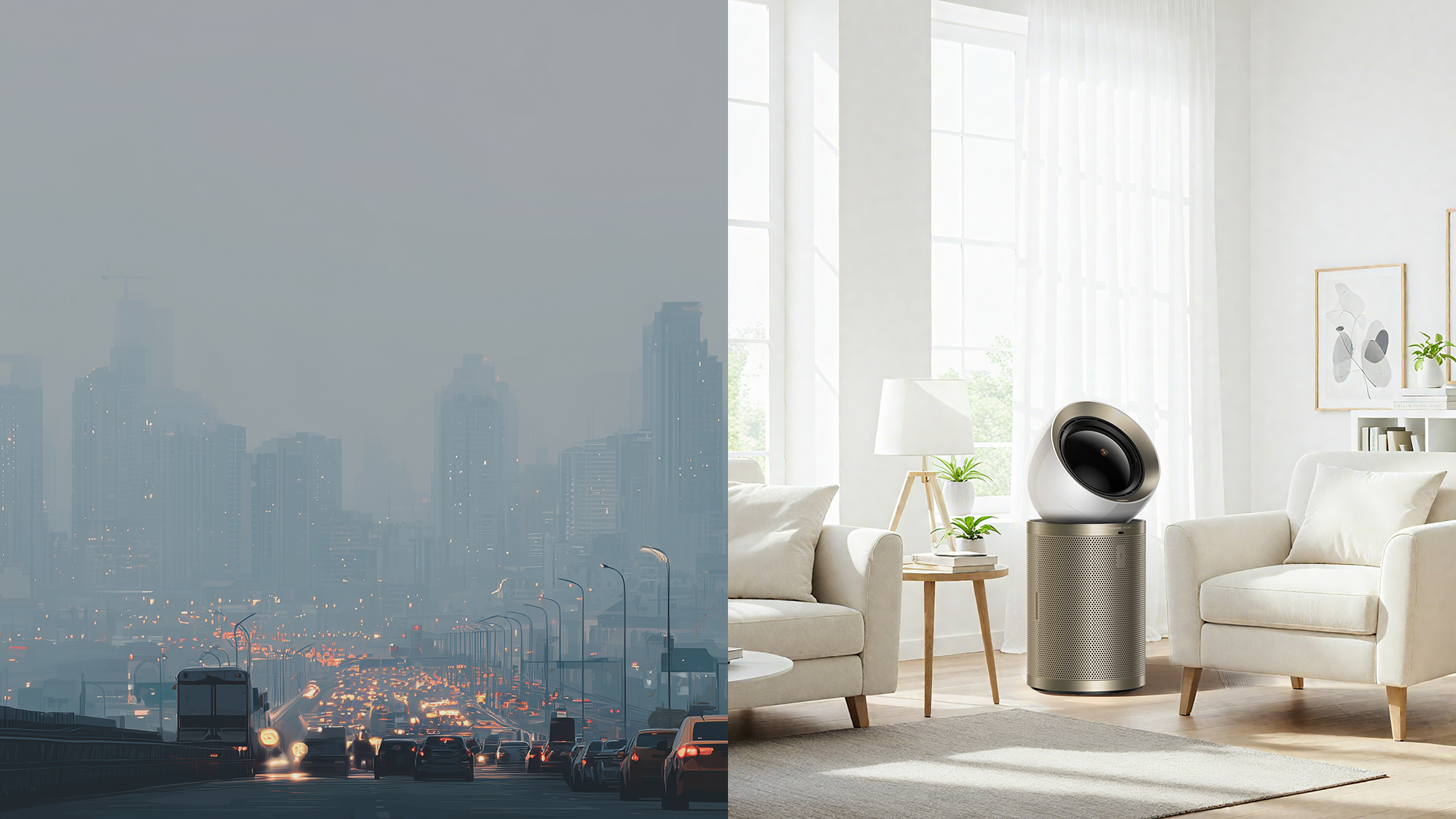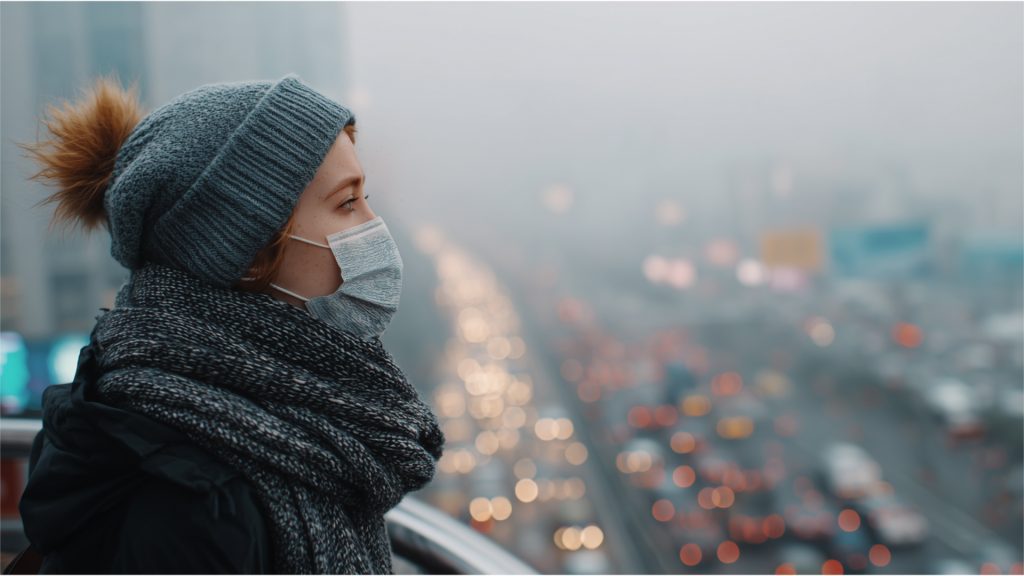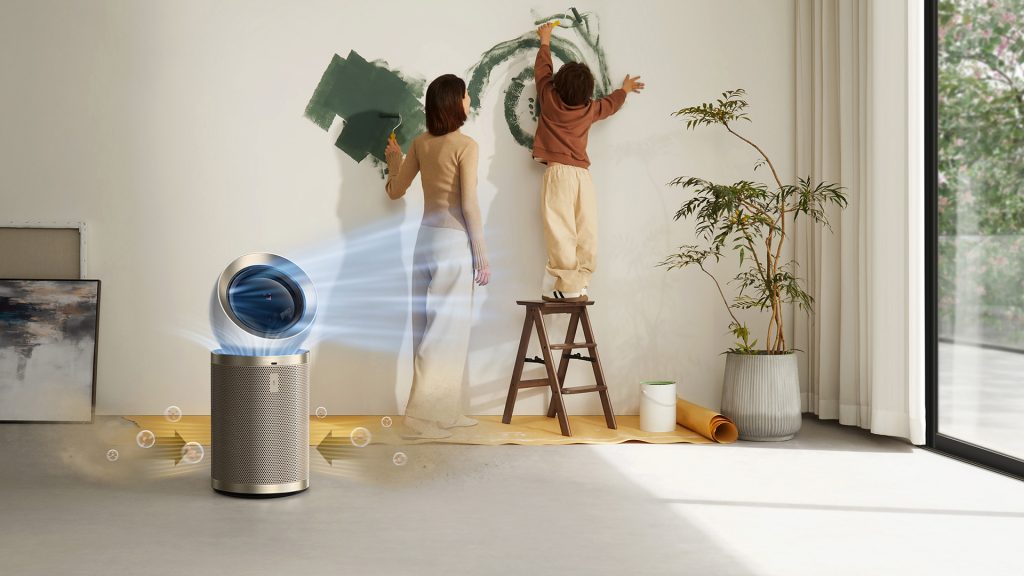
Is your skin feeling drier, flakier, and more irritated often lately? Well, the culprit could be your indoor air. If the air quality inside your home is compromised, it can lead to health issues, so it’s crucial to maintain it just like outdoor air. Dust, allergens, and pollutants indoors can strip your skin of moisture and cause irritation. And that’s why you need air purifiers to keep your indoor air safe and pollutant-free.
In this blog, we’ll explore whether air quality affects skin, explore the impact of both indoor and outdoor air on your complexion, and share practical solutions to keep it within a healthy range.
Table of Contents
- How Outdoor Air Quality Affects Your Skin
- The Hidden Impact of Indoor Air Quality on Skin
- Protect Your Skin from Poor Air Quality: Practical Solutions
- When to See a Dermatologist
- Conclusion
How Outdoor Air Quality Affects Your Skin
Outdoor air carries a mix of harmful pollutants, including PM2.5, ozone, nitrogen dioxide (NO₂), and sulfur dioxide. When these particles come into contact with your skin, they can trigger a range of problems. PM2.5 particles are small enough to penetrate the skin barrier, leading to inflammation, clogged pores, and breakouts.
Ozone and NO₂ can damage collagen and elastin, causing the skin to lose firmness and develop fine lines. Sulfur dioxide contributes to dryness and irritation, weakening the skin’s natural defense. Prolonged exposure to polluted air has been linked to hyperpigmentation, uneven skin tone, and increased sensitivity.

Research shows that air pollution can speed up visible signs of aging by up to 10%, making skin look older than it is. Protecting your skin from environmental stressors with proper cleansing, antioxidants, and sunscreen is essential to reduce these harmful effects and maintain a healthy, youthful complexion. This is especially critical during wildfire season, when elevated levels of pollutants like PM2.5 and ozone can intensify skin damage.
The Hidden Impact of Indoor Air Quality on Skin
Keep indoor air quality in check to protect your health. Even when you don’t feel it, indoor air can carry VOCs (from furniture and cleaning products), dust, mold, smoke, and dry air from HVAC systems.
Can air quality affect skin? A study published in the International Journal of Women’s Dermatology showed that if these contaminants are large in number, they lead to:
- Dryness and irritation
- Increased sensitivity
- Dullness and premature aging
Also, the indoor air can be 2-5 times more polluted than outdoor air, according to the EPA. Hence, it’s essential to know how to improve air quality at home.
Protect Your Skin from Poor Air Quality: Practical Solutions
To protect your skin from outdoor air pollution, follow a thorough skincare routine.
- Use a gentle cleanser to remove pollutants daily; consider double-cleansing in polluted areas.
- Apply antioxidant-rich products (vitamin C, E, and niacinamide) to combat free radicals.
- Use broad-spectrum SPF 30+ to protect against UV-pollution synergy.

For poor indoor air quality, here’s what you can do.
- Stay hydrated by drinking plenty of water and eating water-rich foods, such as cucumbers and watermelon. It’s important to purify indoor air to maintain a healthy environment. Here’s how you can do it.
- Ventilate the home when outdoor air quality is good. Check AirNow for real-time AQI.
- Use a humidifier to maintain 40-60% humidity for skin hydration.
- Invest in good-quality air purifiers to remove indoor pollutants. Note that advanced models, such as those equipped with HEPA and carbon filters, effectively capture PM 2.5, VOCs, and allergens.
If you’re looking for the best indoor air purifier, consider the Dreame AirPursue PM20. It features advanced air purification technology that filters the air within seconds and dispenses clean air 24/7. It is equipped with HEPA filters that can effectively capture 99.97% of PM 2.5 and VOCs. It also comes with a quiet mode, making it ideal for bedrooms.

When to See a Dermatologist
See a dermatologist if you experience persistent skin problems such as acne, eczema, or frequent flare-ups. Professional help is especially important if you notice visible effects of air pollution on your skin, like increased dryness, irritation, or uneven tone. If over-the-counter products and lifestyle changes, such as improving air quality, fail to bring relief, a dermatologist can provide targeted treatments.
Even if your indoor air is clean, expert guidance ensures your skincare routine is effective and tailored to your needs. Early consultation can prevent long-term damage, restore skin health, and help maintain a clear, youthful complexion despite environmental stressors.
Conclusion
The air around you plays a bigger role in your skin’s health than you might think. Whether it’s outdoor smog or the hidden dust and VOCs indoors, these pollutants can leave your skin feeling dull, dry, and older than it should. The good news? A few smart changes, like sticking to a protective skincare routine, drinking enough water, and keeping your indoor air clean, can make a big difference.
Air purifiers, especially advanced ones, help create a fresher home environment that your skin will thank you for. Think of it as caring for your complexion from the inside out.
Discover innovative air purifiers to protect your indoor space at Dreame and maintain the freshness and health of your skin.